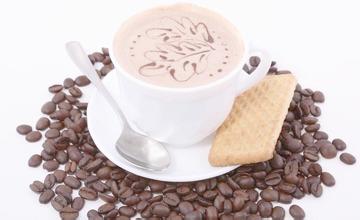Peruvian coffee with elegant and mild acidity Introduction Peruvian coffee production area Introduction
Peruvian coffee is grown in a planned way, which has greatly increased coffee production. Peruvian coffee has a mellow taste and proper acidity, and this lukewarm coffee attitude has made more and more people like it. Peruvian coffee has always been used as one of the stable mellow mixed beans of comprehensive coffee, and its rich acidity and mellow smoothness are its most prominent features. Peruvian coffee has a soft sour taste, medium texture, good taste and aroma, and is an indispensable ingredient in the production of comprehensive coffee. High-quality Peruvian coffee, with strong aroma, smooth, layered, rich sweet, elegant and mild sour taste, will quietly awaken your taste buds.
Peru
Peru is also a big coffee producer. Up to 98% of Peruvian coffee is grown in forest areas, and most producers are small farmers. Coffee is high-quality and balanced and can be used for mixed drinks.
Peru has good economic conditions and a stable political situation, thus ensuring the good quality of coffee. In the mid-1970s, Peruvian coffee production was about 900000 bags a year, and then steadily increased to about 1.3 million bags a year. Although private exporters buy coffee in remote areas through middlemen, the main market is still monopolized by the government. Later, the private Comera de Exportadores de Cafe del Peru was established, which is committed to improving the quality of coffee. Its primary task is to set standards and eliminate inferior products, so as to create an atmosphere of quality supremacy. This positive move heralds a bright future for the coffee industry. Since then, rising prices have encouraged farmers to actively grow coffee rather than cocoa, the region's traditional cash crop.
Peru's finest coffee is produced in Chaximayo, Cusco, Note and Puno. Most Peruvian coffee is grown under natural conditions, but it is also difficult to confirm the cultivation of all coffee trees. Coffee grown under natural conditions costs 10% more than others and is exported to the United States and Japan.
The quality of Peruvian coffee is comparable to that of any kind of coffee in Central or South America. In addition to producing some of the high-quality coffee produced in Peru, most of the high-quality coffee produced in Peru is shipped to Germany to process mixed coffee and then to Japan and the United States, which also illustrates its high standard of quality.
Peruvian coffee cultivation history is not long, but as a rising star, Peruvian coffee is gradually opening up its popularity and entering the international market.
Peru is located in western South America, with a coastline of 2254 kilometers. The Andes runs from north to south, and the mountains account for 1% of the country's area. it belongs to the tropical desert region with a dry and mild climate. Peruvian coffee is mostly grown at the foot of the Andes, where it is rich in traditional Central American top coffee beans.
"how about Peruvian coffee beans and Peruvian organic coffee? Introduction to Peruvian Coffee w.kaf.name
Peruvian coffee beans are best known for their coffee beans from Chimacha Mayou in the middle and Cusco in the south. In addition, some areas in northern Peru also produce characteristic organic coffee. Organic coffee is made of beans grown in the shade of trees. Although the yield of coffee beans is not high because of the method of planting in the shade, its quality can reach the level of gourmet coffee. This is because shading trees can slow down the ripening of coffee trees, help coffee grow fully, make it contain more natural ingredients, breed better flavors, and reduce caffeine content.
Peruvian coffee is grown in a planned way, which has greatly increased coffee production. Peruvian coffee has a mellow taste and proper acidity, and this lukewarm coffee attitude has made more and more people like it. Peruvian coffee has always been used as one of the stable mellow mixed beans of comprehensive coffee, and its rich acidity and mellow smoothness are its most prominent features. Peruvian coffee has a soft sour taste, medium texture, good taste and aroma, and is an indispensable ingredient in the production of comprehensive coffee. Peruvian coffee of outstanding quality, with strong aroma, smooth, layered, rich sweet, elegant and mild sour taste, will quietly awaken your taste buds.

Important Notice :
前街咖啡 FrontStreet Coffee has moved to new addredd:
FrontStreet Coffee Address: 315,Donghua East Road,GuangZhou
Tel:020 38364473
- Prev

Introduction to the planting methods of the Coffee growing area in El Salvador
A brief History of Coffee production in 1742, coffee was introduced to El Salvador from the Caribbean (1740). In the mid-19th century, El Salvador's original export pillar Indigo (one of the dyes) received a gradual decline in the development of synthetic dyes in Europe, and coffee gradually became the main export product under the guidance of the government. In 1856, the first 693 bags of coffee beans were shipped to Europe. all long
- Next

Introduction to the flavor and taste characteristics of American Hawaiian Kona coffee in Latin America
Hawaiian coffee is the only top variety produced in 50 states in the United States, and the United States is naturally the largest market.
Related
- Does Rose Summer choose Blue, Green or Red? Detailed explanation of Rose Summer Coffee plots and Classification in Panamanian Jade Manor
- What is the difference between the origin, producing area, processing plant, cooperative and manor of coffee beans?
- How fine does the espresso powder fit? how to grind the espresso?
- Sca coffee roasting degree color card coffee roasting degree 8 roasting color values what do you mean?
- The practice of lattes: how to make lattes at home
- Introduction to Indonesian Fine Coffee beans-- Java Coffee producing area of Indonesian Arabica Coffee
- How much will the flavor of light and medium roasted rose summer be expressed? What baking level is rose summer suitable for?
- Introduction to the characteristics of washing, sun-drying or wet-planing coffee commonly used in Mantenin, Indonesia
- Price characteristics of Arabica Coffee Bean Starbucks introduction to Manning Coffee Bean Taste producing area Variety Manor
- What is the authentic Yega flavor? What are the flavor characteristics of the really excellent Yejasuffi coffee beans?

